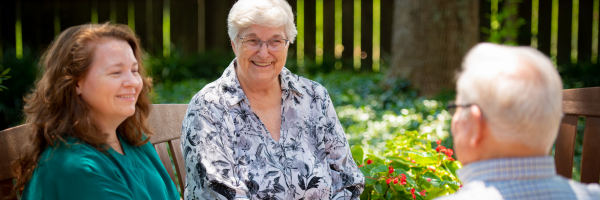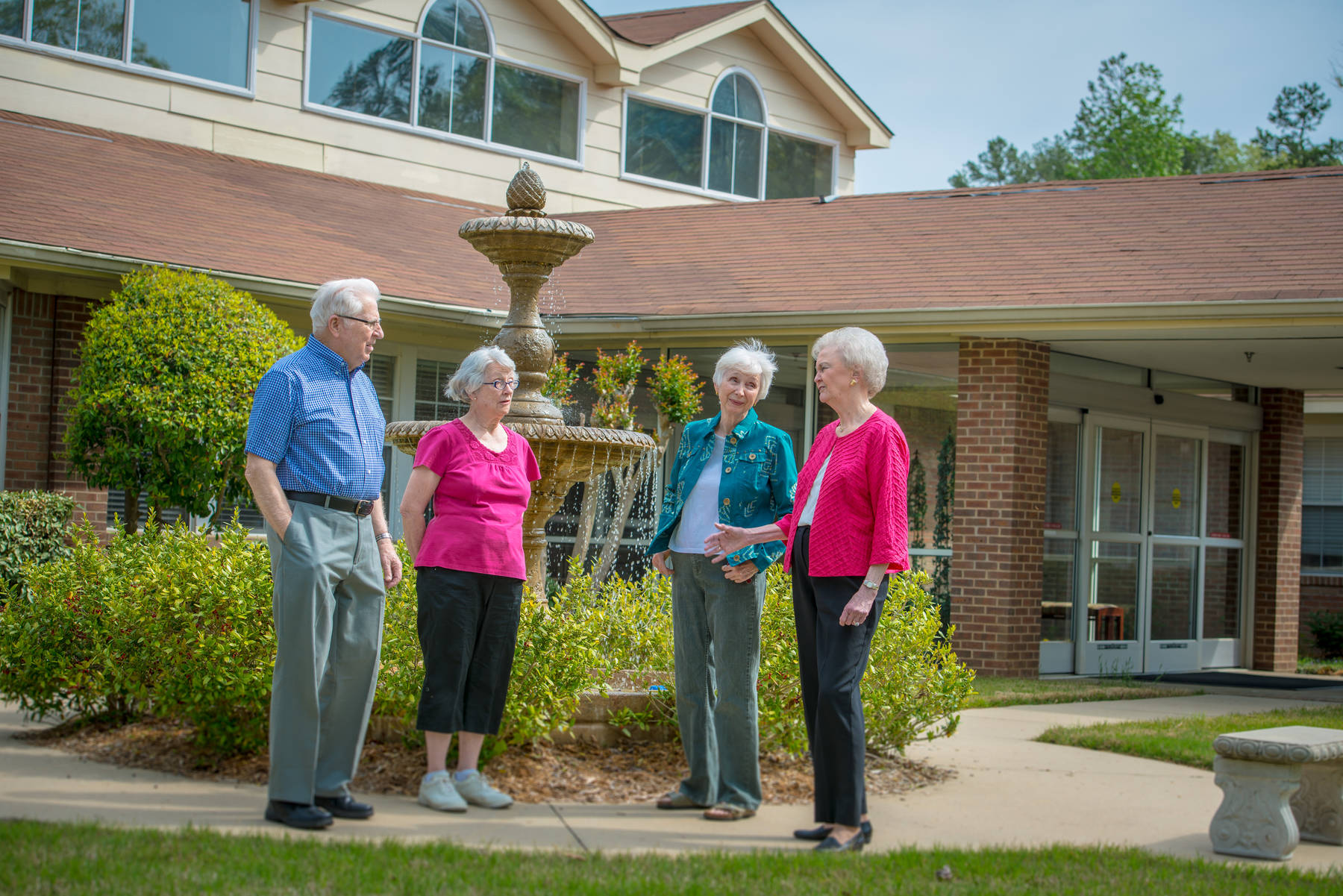By Randy Brantley, Chaplain, Parkway Village
As the Baby Boom generation enters retirement, family members and health care workers face a learning curve in understanding the emotions of aging. As people age, they experience changes in physical strength, senses, and appearance, and they grieve the losses. Most of the changes are unwelcome. With Baby Boomers, whose sense of well being is derived primarily from their looks and physical health, old age with its cumulative physical insults may be seen as a spirit-crushing downward spiral.
Understanding the Emotions of Aging
As a health care and geriatric chaplain, I am present with older people as they express their emotions. I often ask, “How are you feeling?” and I sometimes hear older people express their feelings as “defeated’ or on the “garbage heap of life.” These types of feelings often emerge in a person’s spirit during major transitions such as a medical crisis or moving from one’s own home to a retirement community, assisted living community, or a skilled nursing facility. As healthcare workers, caregivers, and family members, we play an important role in helping older people become emotionally whole when they struggle with negative feelings.
Retirement may rob a person of goals such as financial self-sufficiency or the satisfaction of being productive. Unwanted idleness may leave the retired individual with no idea of what to do with time, talents, and energy. The retired person may feel useless, unwanted, no good, unworthy of respect, and sidetracked. Privately they may feel like they have arrived at the end of the road in this life. The deaths of their friends and relatives and the gradual failing of their own bodies tell them that they are mortal. They may experience losses such as:
• loss of power
• loss of safety
• loss of dignity
• loss of one’s home
• loss of one’s freedom to drive
• loss of family and friends through death
• the fear of losing one’s own life
Suffering so many losses can make a person question God’s goodness and love. Distinctively Christian caregivers can talk about these questions with care receivers, letting them express their feelings as well as inviting them to deepen their relationship with God.
Facing My Own Emotions of Aging
I have discovered greater compassion in my care for older people as I have explored the realities I will one day face in the aging process, too. To care one must offer one’s own vulnerable self to others as a source of healing. As long as we think that caring means only being nice and friendly to old people, paying them a visit, bringing them flowers, or offering them a ride, we are apt to forget how much more important it is for us to be willing and able to be present to those we care for.
How can we be fully present with the elderly when we are hiding from our own emotions of aging? How can we listen to their pains when their stories open wounds in us that we are trying to cover up? How can we offer companionship when we want to keep our own aging self out of the room, and how can we gently touch the vulnerable spots in older adults’ lives when we have armored our own vulnerable self with fear and blindness?
No loss of aging can compare with the gain of knowing Christ and the power of His resurrection. Our faith in Jesus gives us the courage to face our own aging with honesty.
Tips for Helping Older Adults with Emotions of Aging
Following are some practical tips on how you can treat an older adult with dignity and honor.
Listen to his concerns.
Practice active listening. Pray attention and show that you are listening. Repeat statements you heard without judgment or inflection.
Ask for her opinions.
Let her know her opinions are important to you.
Involve him in decisions.
Ask questions such as, “Will you…?” “Can I…?” “Would you like to…?”
Include her in the conversation.
Don’t talk about her as though she’s not there or refer to her in the third person.
Speak to him as an adult.
Even if you’re not sure how much he understands, speak to him as a fellow adult. Studies show he may understand a great deal more than you think. Use a formal title (Dr. Smith, Mrs. Jones, Professor Woods, etc.) unless the person gives you permission to address him informally.
Imagine yourself as the aging person.
Speak and act toward the person as you would want to be spoken to and acted toward. Smile, be kind, and be encouraging.
The bottom line is that compassion for senior adults improves when we get in touch with our own emotions of aging. Remember, you will be “old” in someone’s eyes soon, so begin today working on not becoming grumpy. Dave Willis once said, “Show respect even to people who don’t deserve it; not as a reflection of their character but as a reflection of yours.”
Chaplain Randy Brantley plans and leads spiritual services at Parkway Village. He is also available for conversation and counseling. When you come for a tour, ask to meet Chaplain Randy.


